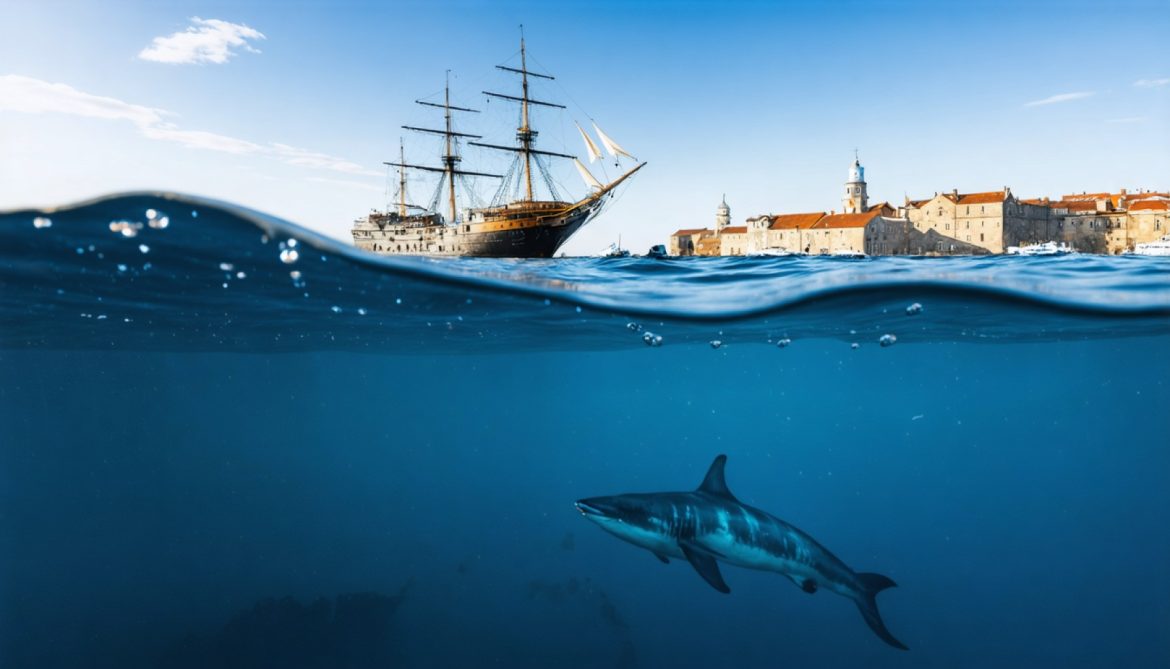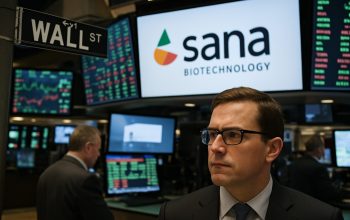- Gloucester, Massachusetts, historically a fishing hub, is transforming into a center for marine biotechnology innovation.
- Gloucester Marine Genomics Institute (GMGI) is advancing marine science, studying sea urchins for insights into aging and disease resistance.
- The institute uses environmental DNA and tools like the Van Veen grab to explore ocean biodiversity, collaborating with local fishermen.
- The Gloucester Biotechnology Academy offers a transformative nine-month program, training participants in molecular biology and biomanufacturing.
- Programs at the academy are tuition-free due to a significant grant, providing opportunities for diverse participants, including middle and high school students.
- Gloucester’s evolution reflects a blend of maritime tradition and modern science, showcasing resilience and innovation in the community.
In the storied seaport of Gloucester, Massachusetts, where fishing once defined life and legacy, a new tide is turning. A city where the very air tastes of salt and history, Gloucester has now become a crucible of innovation, blending ancient fishing heritage with groundbreaking science at the Gloucester Marine Genomics Institute (GMGI). This nonprofit isn’t just riding the waves of marine biotechnology; it’s making them.
Picture a coastline where boats once crowded like gulls at a feast—350 strong, until recent shifts in climate, legislation, and resources forced a stark decline. Despite this, Gloucester’s spirit proved resilient. From these same historic waters now emerges a new pursuit: understanding life beneath the surface, from the calcium of the sea urchin to the baleen of the whale.
Inside the institute, researchers delve into the mysteries of the deep. Their unlikely muse? The sea urchin. This unassuming creature shares a surprising genetic kinship with humans, holding potential keys to unraveling the secrets of aging and resisting disease. Scientists, together with seasoned fishermen like Tom Hill, leverage this via environmental DNA to map the biodiversity of treasured sites like Stellwagen Bank. Their tool of choice—a Van Veen grab—scoops up not just sediment, but a chronicle of ocean life, from the microscopic to the majestic.
The impact of this endeavor reverberates far beyond the lab. At the nearby Gloucester Biotechnology Academy, an educational revolution unfolds. Here, teenagers and adults, many from fishing descents, trade trawlers for test tubes. A transformative nine-month program arms them with skills in molecular biology, cell culture, and biomanufacturing—fields pivotal to sustaining the biotechnology around them. Graduates find themselves not only job-ready but confidence-replenished, stepping into careers enriched with purpose and potential.
John Doyle, the Education Director, illustrates that the academy offers more than technical prowess; it instills self-belief. This initiative is tuition-free for the last three years due to a landmark grant, widening the horizon for every participant. Even at a tender age, summer programs invite curious minds from middle and high schools to dip their toes into the ocean of science.
Gloucester, where waves once sang only of fishing, now echoes with the promise of possibility. The convergence of age-old maritime traditions with cutting-edge biotechnology illustrates that adaptation is woven into the fabric of this community. What was once a landscape of nets and hulls now cradles a future where science and stewardship sail hand in hand. Here, the ocean doesn’t just lap at the shore; it carries a story of resilience, rebirth, and relentless discovery.
Reimagining a Seafaring Legacy: How Gloucester is Steering a New Course in Marine Biotechnology
Gloucester: A Hub of Marine Biotechnology Advancement
Gloucester, Massachusetts, renowned for its rich maritime heritage, is experiencing a transformative wave that reinvents its identity from an age-old fishing mecca to a beacon of marine biotechnology. At the heart of this metamorphosis is the Gloucester Marine Genomics Institute (GMGI), where centuries of marine tradition intersect with pioneering science. Let’s delve deeper into this compelling shift and explore additional facets and insights about Gloucester’s burgeoning marine biotech scene.
Unveiling the Potential of Marine Biotechnology
The Role of Sea Urchins in Groundbreaking Research
As an emblematic subject of study, the common sea urchin plays a pivotal role in GMGI’s research initiatives. These spiny sea creatures may hold the key to decoding the mysteries of aging and immunity due to their significant genetic overlaps with humans. Scientists explore their genomes to potentially unlock breakthroughs in age-related diseases and regenerative medicine.
Environmental DNA: A New Frontier
Environmental DNA (eDNA) is revolutionizing how marine biodiversity is cataloged in prime areas like Stellwagen Bank. By extracting DNA from ocean sediment samples, researchers can efficiently document the ecological tapestry, identifying species from fish to the elusive whale, with unparalleled accuracy. This technological edge is crucial for understanding and conserving aquatic ecosystems amidst global environmental changes.
Expanding Educational Horizons
Gloucester Biotechnology Academy: Cultivating Future Scientists
At the core of Gloucester’s educational landscape, the Gloucester Biotechnology Academy serves as a linchpin for aspiring scientists. The academy’s intensive nine-month program, offered free of charge thanks to recent grants, provides hands-on training in molecular biology and biomanufacturing. Notably, program graduates boast a 70% employment rate in local biotech firms, underscoring its success and impact on the community.
Addressing the Skills Gap with Accessible Education
John Doyle, Education Director at the academy, highlights the importance of empowerment and self-efficacy in education. By offering a tuition-free curriculum, the academy dismantles financial barriers, enabling students from diverse socioeconomic backgrounds to pursue careers in cutting-edge science, shifting family legacies from fishing vessels to laboratory benches.
Industry Trends and Predictions
Marine Biotechnology Market Growth
The global marine biotechnology market is projected to grow significantly, driven by the increasing demand for sustainable and innovative bioproducts. According to market analyses, the sector is expected to reach $6.4 billion by 2030, with North America’s leadership bolstered by institutions like GMGI driving the charge.
Future Challenges and Opportunities
As marine biotechnology evolves, challenges such as sustainable resource sourcing and the ethical implications of genetic modifications loom. However, they are matched by opportunities to harness marine organisms for healthcare, environmental conservation, and industrial applications. Gloucester stands poised to navigate these waters expertly, balancing innovation and sustainability.
Actionable Recommendations
1. Engage with Local Education Programs: Consider enrolling in marine biotechnology courses if you’re near Gloucester or explore online courses for foundational knowledge from institutes like edX.
2. Stay Updated on Environmental DNA Technology: Follow webinars and talks from marine institutes to understand the future impact of eDNA methodologies on biodiversity conservation.
3. Explore Career Opportunities in Marine Biotech: With market growth, career pathways in biomanufacturing and biotechnology research are expanding, offering roles in diverse specializations.
Conclusion
As it embarks on this exhilarating journey, Gloucester epitomizes the spirit of resilience and reinvention. It showcases how a community, firmly rooted in tradition, can pivot towards a future brimming with scientific promise and ecological stewardship. The synthesis of its storied past with a forward-thinking enterprise ensures that Gloucester remains a vital player on the global stage of marine biotechnology innovation.
For more insights into marine biotechnology and educational opportunities, visit Gloucester Marine Genomics Institute.



